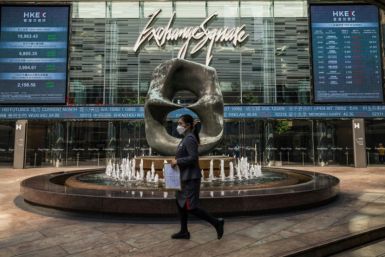China's Slowdown May Result to 'Quality Growth' -Goldman Sachs Economist
China is slowing down but that may not necessarily be a bad thing. China's economic transformation could probably mean better quality growth, according to Goldman Sachs economist Jim O'Neill.
His comments came as China released yet another set of disappointing trade data in August, raising concerns of a "hard landing" in the world's second largest economy.
In an interview with Xinhua, a state-owned news agency, O'Neill, the chairman of Goldman Sachs Asset Management, also said that the days of 10 percent growth are probably over but was optimistic that China's slowdown could translate to better quality growth.
Related News: China Promises to Make Growth a Bigger Priority
Related Story: Is There Any Credibility Left In China's Bull Case?: Michael Pettis
China posted growth of 7.4 percent in the year to the September quarter, down from 7.6 percent growth in the previous quarter, but in line with analyst forecasts. On a quarterly basis, China's economy grew 2.2 percent in the September quarter, up from 1.8 percent in the June quarter, in what may be a sign that the economic slowdown has bottomed out.
Beijing is targeting growth of 7.5 per cent this year, which is down on the 9.2 percent growth the country achieved in 2011.
Related News: China Confident of 10% Export Growth This Year
Related News: China's Growth to Hit Lowest Level Since 1990
O'Neill said:
Whether China can make this transformation is the biggest question the world faces. As we can observe, it is not so easy.
O'Neill, who coined the term BRIC in 2001, said Beijing needs to increase its efforts to rebalance the economy as well as create a stronger support mechanism in terms of healthcare and pension.
The good news, he said, is Chinese policymakers recognise these challenges and are working to address them.
According to O'Neill, who recently labelled China the "best performing BRIC", China's will be closer to its adjustments by 2015 but warned that "it will not be a smooth straight path".
Related Story: How China Can Rebalance Its Economy: Michael Pettis
Related Story: How China Can Address Its Economic Challenges By 2030: Justin Yifu Lin
Related Story: Making Sense of China's Mixed Signals






